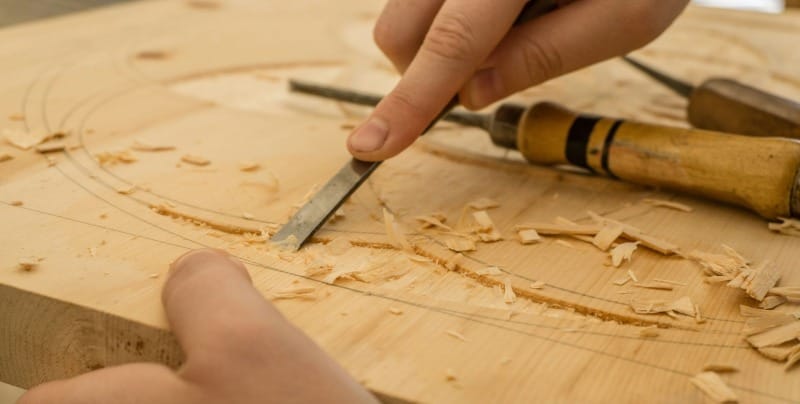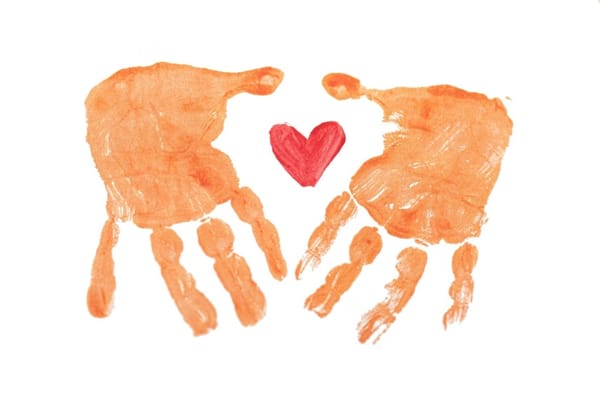Finding effective ways to boost mental well-being is more important than ever. A groundbreaking new study has revealed that engaging in arts and crafts activities can significantly improve mental health, offering benefits comparable to those gained from employment. This article explores the fascinating connection between creativity and mental wellness, providing valuable insights for anyone looking to enhance their psychological health through simple, enjoyable activities.
Key Takeaways:
- Engaging in arts and crafts activities can boost mental well-being as much as having a job.
- Creative pursuits increase happiness and life satisfaction.
- Crafting provides a sense of achievement and self-expression.
- About 37.4% of study participants engaged in some form of crafting.
- While crafting improves well-being, it may not directly alleviate loneliness.
- Researchers suggest incorporating crafting into public health strategies.
Introduction
In a world where stress and anxiety seem to be on the rise, finding effective ways to improve mental health is crucial. A recent study conducted by researchers at Anglia Ruskin University has shed light on an unexpected source of mental well-being: arts and crafts. This research suggests that engaging in creative activities can have a profound positive impact on our psychological health, rivaling the benefits typically associated with employment.
The Study: Crafting and Mental Health
The study, led by Dr. Helen Keyes, explored the relationship between creative activities and mental well-being[5]. Researchers carefully controlled for various demographic factors, including age, gender, and socioeconomic status, to ensure the reliability of their findings. Participants were asked about their experiences with craft projects and their levels of happiness and anxiety over the past year.
Key Findings
One of the most striking discoveries was that individuals who engaged in creative activities reported higher levels of happiness and life satisfaction[5]. This finding suggests that crafting could be a valuable tool for those dealing with mental health issues worldwide.
Interestingly, about 37.4% of the study participants reported engaging in some form of crafting[5]. These individuals not only celebrated personal achievements during the creative process but also strengthened their sense of purpose.
The Unique Benefits of Crafting
Dr. Keyes emphasized that crafting offers unique mental health benefits, often surpassing those seen from employment[5]. "Crafting provides a sense of achievement and a meaningful route to self-expression, which is not always the case with employment," she explained.
Sense of Achievement
One of the key advantages of crafting is the tangible sense of achievement it provides. Unlike many work-related tasks, craft projects often result in a physical product that creators can take pride in. This sense of accomplishment can be a powerful boost to self-esteem and overall well-being.
Self-Expression
Crafting also offers a unique outlet for self-expression. Whether it's through painting, knitting, woodworking, or any other creative pursuit, individuals can express their thoughts, emotions, and personality in ways that may not be possible in their daily lives or work environments.
Crafting vs. Traditional Jobs
A separate editorial highlighted how hobbies, particularly creative ones, can be more fulfilling than conventional jobs[5]. This is partly because hobbies remove the pressure to perform, granting individuals "permission to fail" without fear of judgment. As a result, creative activities become joyful explorations rather than competitive tasks.
Stress Relief
Engaging in arts and crafts can be a powerful form of stress relief[7]. The focus required for creative activities can help take your mind off daily worries and pressures, providing a much-needed mental break.
Improved Cognitive Function
Crafting often involves learning new skills and problem-solving, which can help keep your mind sharp. Some studies suggest that engaging in mentally stimulating activities like crafting may even help reduce the risk of cognitive impairment as we age[3].
Crafting and Community
While the study didn't find a direct link between crafting and reduced loneliness, many communities are recognizing the potential of creative activities to bring people together[5]. Local events and workshops are promoting arts and crafts as avenues for connection and creativity.
Nature-Inspired Crafting
Some communities are combining crafting with nature appreciation. For example, the Ellen Hutchins Festival offers free workshops for families to explore crafts, foraging, and dyeing[5]. These nature-themed activities encourage participants to experience communal joy and learn valuable skills relevant to mental health.
Incorporating Crafting into Health Strategies
Given the positive findings, Dr. Keyes suggested that there's potential for government support of creative endeavors as part of public health strategies[5]. "There's room for health services to fund and promote crafting as part of their wellness initiatives," she noted.
However, the researchers cautioned against assuming causation from their findings. Dr. Keyes emphasized the need for further research, stating, "The next step would be to carry out experimental studies to measure well-being before and after crafting interventions."
Crafting as Self-Care
In recent years, the concept of self-care has gained significant attention. While often associated with activities like exercise or meditation, crafting is emerging as a valuable addition to self-care routines[5]. Engaging in creative activities can provide comfort and uplift emotional well-being, creating feelings of success and satisfaction over time.
Mindfulness Through Crafting
Many craft activities, such as knitting or painting, require focus and attention to detail. This can naturally lead to a state of mindfulness, where individuals are fully present in the moment. Mindfulness has been shown to have numerous mental health benefits, including reduced stress and anxiety.
Getting Started with Crafting
If you're inspired to explore the mental health benefits of crafting, here are some tips to get started:
- Choose a craft that interests you: Whether it's painting, knitting, woodworking, or scrapbooking, pick something that excites you.
- Start small: Begin with simple projects to build confidence and avoid frustration.
- Join a class or group: This can provide guidance and social connection.
- Set aside regular time: Consistency can help you develop your skills and reap the mental health benefits.
- Don't focus on perfection: Remember, the process is often more important than the final product.
Conclusion
The recent study highlighting the mental health benefits of crafting offers exciting possibilities for improving well-being. By engaging in creative activities, individuals may find a powerful tool for enhancing happiness, life satisfaction, and overall mental health. While more research is needed to fully understand the relationship between crafting and mental well-being, the current findings suggest that picking up a creative hobby could be a simple yet effective way to boost your psychological health.
As we continue to navigate the challenges of modern life, incorporating arts and crafts into our routines may provide a much-needed source of joy, achievement, and self-expression. Whether you're a seasoned crafter or a complete beginner, the potential mental health benefits make it well worth exploring the world of creative pursuits.
Citations:
[2] https://blooming.princeton.edu/crafting-mental-health
[3] https://www.aru.ac.uk/news/arts-and-crafts-boost-mental-wellbeing-new-study
[4] https://evrimagaci.org/tpg/crafting-boosts-mental-wellbeing-with-new-study-25968
[6] https://pariscorp.com/health-benefits-of-crafting/
[7] https://www.healthyquilting.com/post/8-ways-crafts-can-benefit-our-physical-and-mental-health











Member discussion